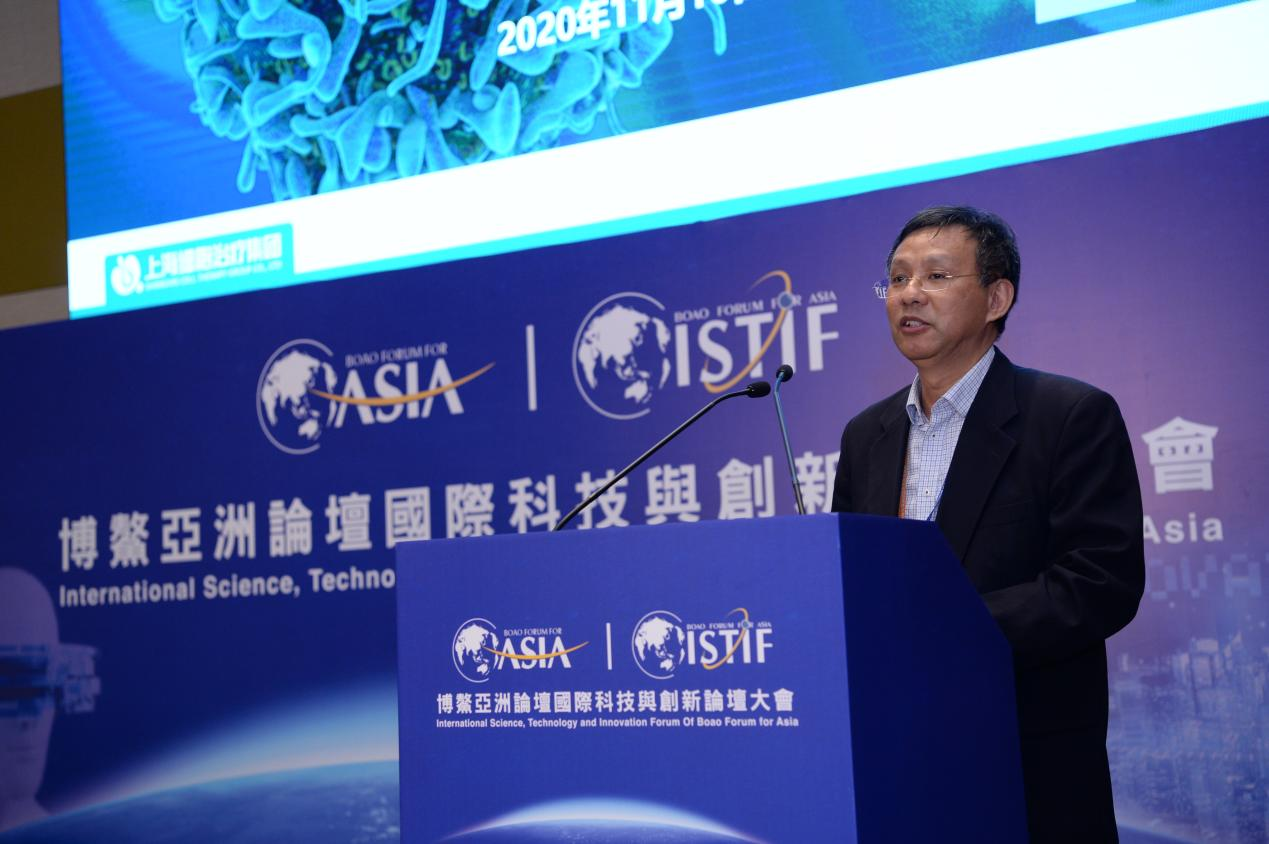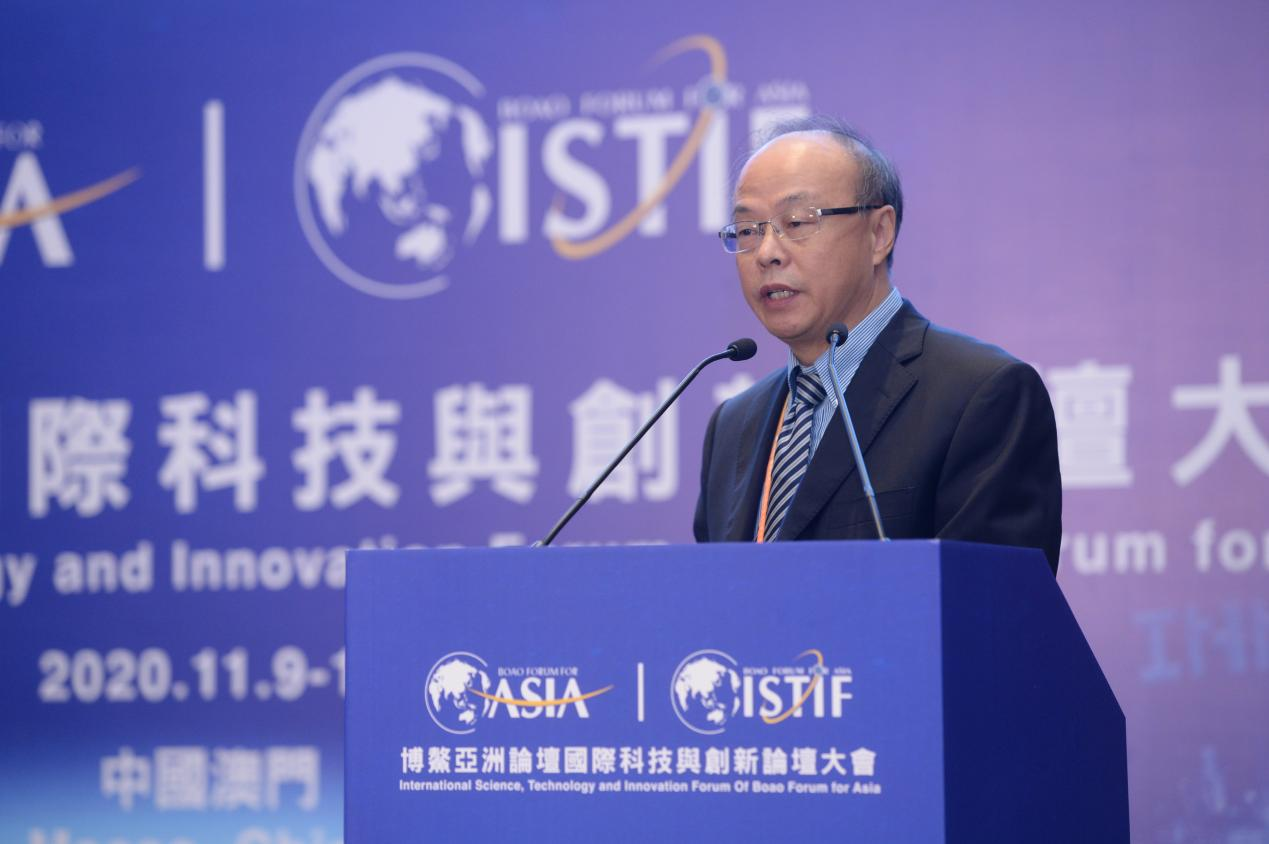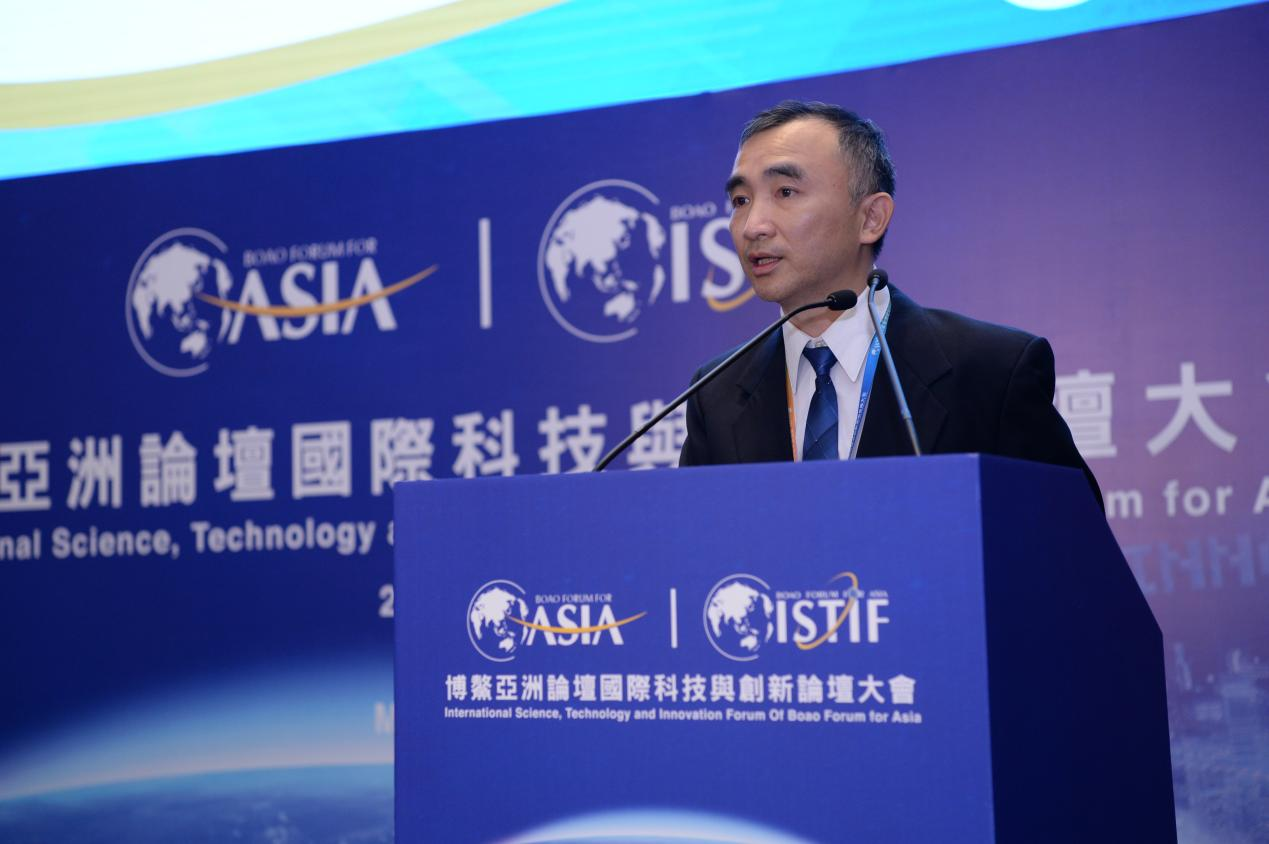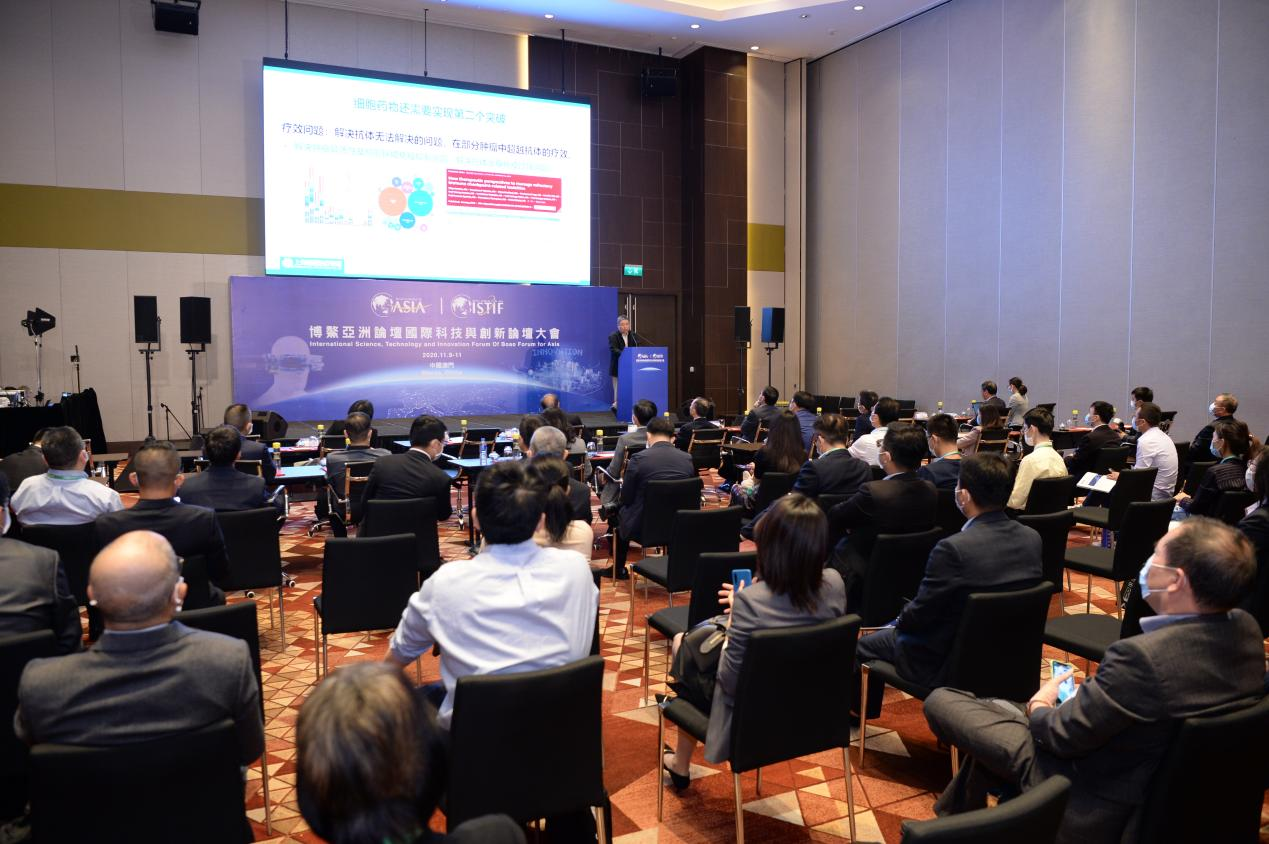With the continuous development of molecular biotechnology, cell and gene therapy has a good and broad application prospect, and drugs developed through cell and gene technology will continue to come into the treatment of thousands of patients with the advancement of clinical and marketing. Globally, cell and gene therapy has changed the direction and solutions of the medical field, and will also impact the existing pharmaceutical industry.
The session “Innovation and Life – Now and the Future of Cell and Gene Therapies” was moderated by Wu Zhaohui, Professor, Dean, School of Life Sciences, Fudan University. Xiang Charlie Chunsheng, Distinguished Professor of Zhejiang University, Deputy Director of State Key Laboratory of Diagnosis and Treatment of Infectious Diseases, and Chief Scientist of the National 973 Programme; Chen Guokai, Professor Associate Dean of Faculty of Health Sciences (Teaching), University of Macao; Qian Qijun, President of Shanghai cell therapy group Co., Ltd. , President of Shanghai Institute of cell therapy; Zhu Li, Chief Strategy Officer of GenScript; and Wang Yu, Chief Scientist of Jiangsu Puriken Biomedical Technology Co., Ltd. focused on cell therapy and drug research and development, and discussed in-depth clinical research, market regulation and enhancement of the ability of technical review and other related areas, so as to put forward more new solutions for the life and health of human beings.
Cell therapy is a very efficacious treatment option and a new molecular biotechnology born from the development of cells and genetics in the new era. In the session, the delegates showed the audience three research and case studies on the targeted treatment of a specific major disease through cell therapy, such as the treatment of organ fibrosis with uterine blood stem cells and clinic presented by Xiang Charlie Chunsheng, the treatment of cardiac disease with multifunctional stem cells and clinic presented by Chen Guokai, and the targeted killing of tumour cells with immune cell CAR-T and T-cell protocols presented by Qian Qijun. The application of multi-functional stem cell therapy for heart disease will largely alleviate the current embarrassing situation where the supply of cardiac therapy in China is far lower than the demand, allowing medical personnel to make cardiac cells by extracting the patient's stem cells with a view to alleviating or even solving the cardiac disease fundamentally; the T-cell programme brought by President Qian Qijun proposed a more powerful therapeutic means for tumour extermination, which will be achieved by Improving the precise targeting of CAR-T immune cells and achieving a breakthrough in monoclonal antibodies, while minimising the individualisation process and solving the cost problem with scale-up.
The rapid development of cell therapy also brings a series of regulatory policy and system establishment issues. Wu Zhaohui introduced that the current practice of most countries in the international arena is to include cell therapy in the supervision of the drug administration, while China is constantly oscillating between drugs and technology. Drug Registration Management Methods was published in 2019, and for the first time in China, cell therapy was classified as a co-management of health and drugs. With the further development and application of cell therapy, how to improve the technical review capacity and regulate the market in the future will be an issue for the government and academia to think about. Wu Zhaohui believed that drug management is the main channel for cell therapy, and he pointed out that the relevant departments need to legislate to clarify the attributes of cell therapy, and establish evaluation methods adapted to cell therapy in order to improve and standardize the guidelines for preclinical evaluation and clinical trials.







